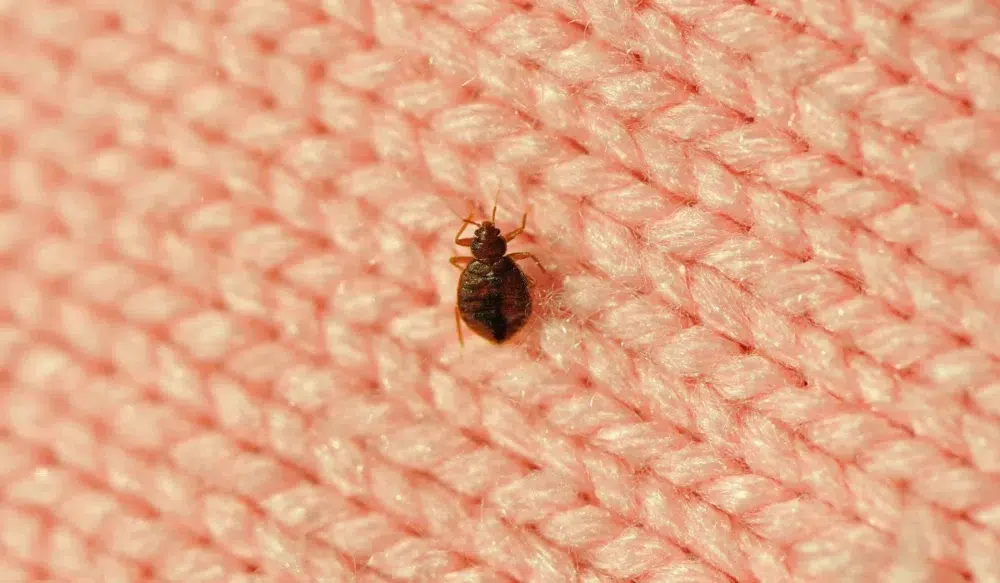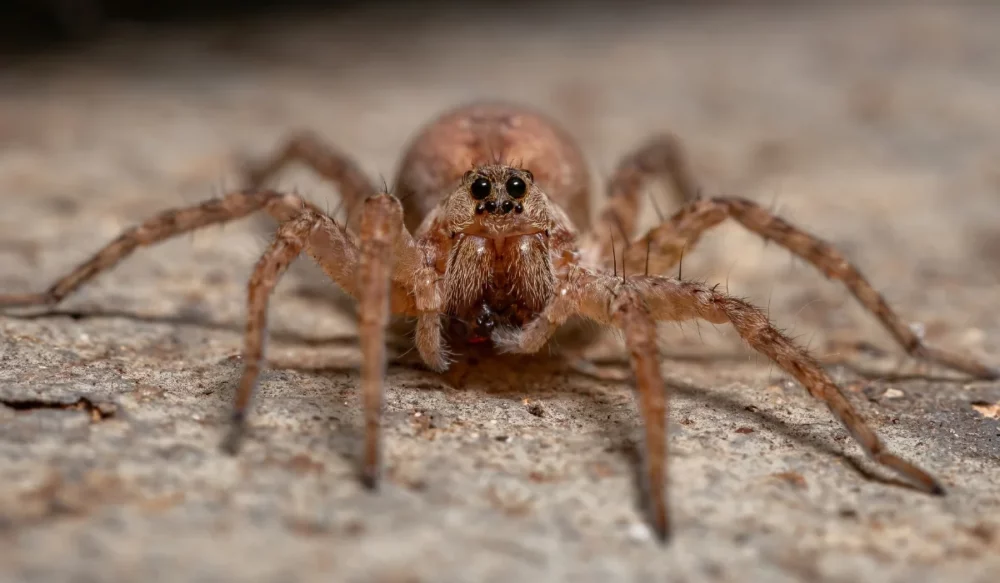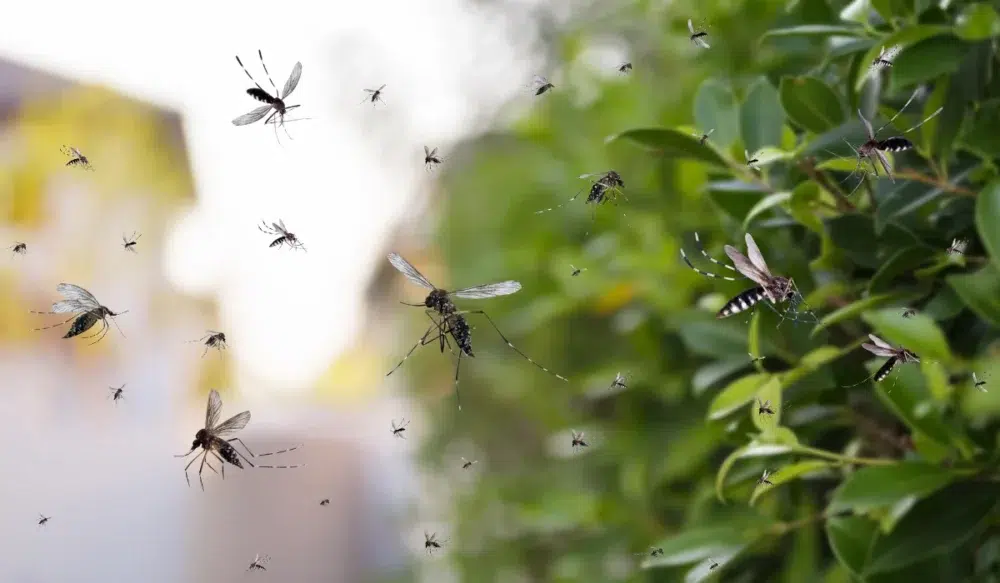We don’t get four solid seasons in Phoenix. The month of January is winter for us. Snowfall and cold temperatures are extremely rare, so we don’t deal with seasonal pest control like they do in the Northern states. But that doesn’t mean we don’t have unique pest control needs at different times of the year. For example, termites often swarm in mid or late summer. You can almost set your watch to it. If you’re looking to protect your home from termite damage, you should watch for active termites in your yard during the summer, in particular, winged termites. While folks up north are dealing with termite swarmers in the spring, we have other tasks to tackle. March to April is a good time to do some spring cleaning because the temperatures are between 65 and 75 degrees Fahrenheit. As you tackle spring cleaning, you should think about pest control as well. Pests start getting into homes as the temperatures rise. Do you see how it works? Join us as we look at temperature and other factors that drive pests into your Phoenix home, what attracts pests to your property, why pest control is super important, and what home pest control tips can help keep them out in every season of the year. If you would prefer to have a knowledgeable and highly-trained pest professional deal with your pest control needs, jump to our contact page. We offer industry-leading pest control in Phoenix and can guide you toward the best pest control for your home.
How Phoenix Pests Respond To The Seasons
When we think about seasons in Phoenix, we typically think of cold winter nights, hot summer days, and times of drought. We also consider the seasons as when we see bugs most, which is basically March to November, with October and November being particularly bad. All year long, you can work to outsmart bugs and tackle pest problems in every season. Here are a few ways the weather will impact common pests in Phoenix.
Ants: We have a large variety of ants. Some will not create nests indoors. Others will. The ants that stay outside are impacted by cold temperatures and drought conditions. The ants that create nests indoors are not impacted by the weather at all. But, more than weather, ants are impacted by available food sources, such as honeydew, nectar, and rotting organic matter.
Scorpions: These are our warm weather friends. The scorpion species that presents the most problems is the bark scorpion. It can slip through a crack the size of a credit card, and it can scale walls like Spiderman. When temperatures drop, bark scorpions may hide in structures. Exclusion work is critical for keeping these pests out.
Spiders: Each of the spiders in Phoenix are most active during their mating seasons. For some, that is early in the year. For others, it is in late summer or fall.
Termites: Mid to end of summer, watch for termite swarmers. But keep in mind that termites are active all year long in the state. The ground temperatures never get cold enough to cause these insects to go into diapause.
Bees: During the spring and summer, you may have bees visit your property. Sometimes, they’re just passing through. If you wait a few days, they’ll move on. If they decide to establish a hive, things can get tricky.
Mosquitoes: If there is a mosquito season, it is March to October, but they can come soon and go late. What impacts mosquitoes most isn’t the heat as much as it is the moisture. We only get an average of nine inches of rain a year, so mosquitoes are drawn to properties with sprinklers and moisture sources.
Pigeons: These are general pests that are active all year long. There is no season when pigeon problems get worse. They can drive you crazy any time of the year.
Rodents: Rodents tend to get into structures more when temperatures dip in January, or when temperatures rise in the summer. Your home provides safety from outdoor temperature changes.
Bed Bugs: If we have a winter pest, it is the bed bug. Problems with bed bugs rise during the winter holidays as many residents do a lot of traveling and accidentally pick bed bugs up and bring them home.
In general, all of the common pests in Phoenix can present a problem for you all year long, but it is essential to think about pest control before temperature drops and rises, or in advance of drought conditions. These motivate pests to seek shelter.
Tips For Preventative Pest Control
Now that you know a little about how pests behave during the seasons, let’s discuss some of the general tips that will help you keep them out of your home. Here are our best suggestions for DIY home pest control.
Nectar: Many pests eat nectar. While it isn’t ideal to remove all the flowers from your property, there is one source of nectar you may want to control. Pests get nectar from flowering lawn weeds. When weeds take over your yard, pest problems are likely to follow.
Trash: Many pests are attracted to the scent of decaying organic matter and will get into your trash. Keep your trash covered and your receptacles free of strong odors. It is also wise to keep receptacles away from entry ways so that flies don’t zip right in through an open door.
Birdseed: Many pests eat seeds. If you have feeders, keep them away from your home. We understand why you would want to have bird feeders. Birds are wonderful to watch. But it isn’t wonderful to have rats and mice in your home.
Nuts and Fruits: Many pests eat these two food sources. If you have trees that produce nuts and fruits, try to stay on top of clean-up. You’ll reduce pest activity in your yard.
Harborage: There are many places pests can hide. Animal pests may get under your deck. You can keep them out by applying hardware cloth as a barrier. Spiders get into objects in your yard. Pick up yard clutter to remove hiding places.
Water: All pests need water. Inspect your property and look for any water sources, both low and high. Remove them if possible. Also, consider the health of your gutter system. When rainwater pours over the sides of your gutters or leaks through a small opening, it can cause perimeter dampness and attract pests.
Entry Points: Holes and gaps in your exterior let bees into your wall voids and general pests into your home. Use a caulking gun or cans of foam to seal every entry point they can use. Take the time to also replace weatherstripping, door sweeps, and screens, as needed.
Food Debris: When pests get into your home, they’re going to want to stay if they find food. Many pests are looking for crumbs, grease, oil, juice spills, and open trash. Sanitation is the key to keep pests out.
Spider Webs: Web removal is essential if you don’t want spiders in your home. A web can have an egg sac, and an egg sac can have hundreds of spiders in it. When you remove these sacs and crush them, you prevent those spiders from hatching, growing, and infiltrating.
These and other natural home pest control methods work to deter pest activity and block access to your home. When pest pressures are high or conducive conditions are not easily corrected, pest control products are needed. If this is the case, contact a licensed pest control provider to get pest control for your home.
Regular Pest Control Is Important
Pests never stop applying pressure to your yard and to the exterior of your home. Since they don’t stop, you can’t stop either. You need to continually work to manage attractants and reduce pest activity in every season of the year. Unfortunately, it is a lot of work. Pest control products can help lighten the load, but they’re often applied incorrectly. If you use over-the-counter products to deal with pests, you can have varied results. While it is bad to spend money and put time into dealing with pests and have no results, failed pest control isn’t the worst outcome. It is possible to make pest problems worse. You can cause ant colonies to bud. That turns one colony into two or more. You can cause roaches to become bait averse, which makes them harder to control. You can drive stinging insects into your home rather than out. We could go on for pages about all of the many ways pests outsmart people. You’ll always get the best results by having a trained and experienced pest control technician handle your pest control.
Residential Pest Control For Phoenix Homeowners
Whether you need one-time pest control to arrest a pest control issue or ongoing pest management for your home, Green Home Pest Control can help. We use advanced technologies and field-tested methods to get the best results every time. Reach out to us today to learn more or to schedule a visit with one of our friendly technicians. We’re always standing ready to help.
Request Your Free Estimate Today
Complete the form below to request your no obligation estimate.



